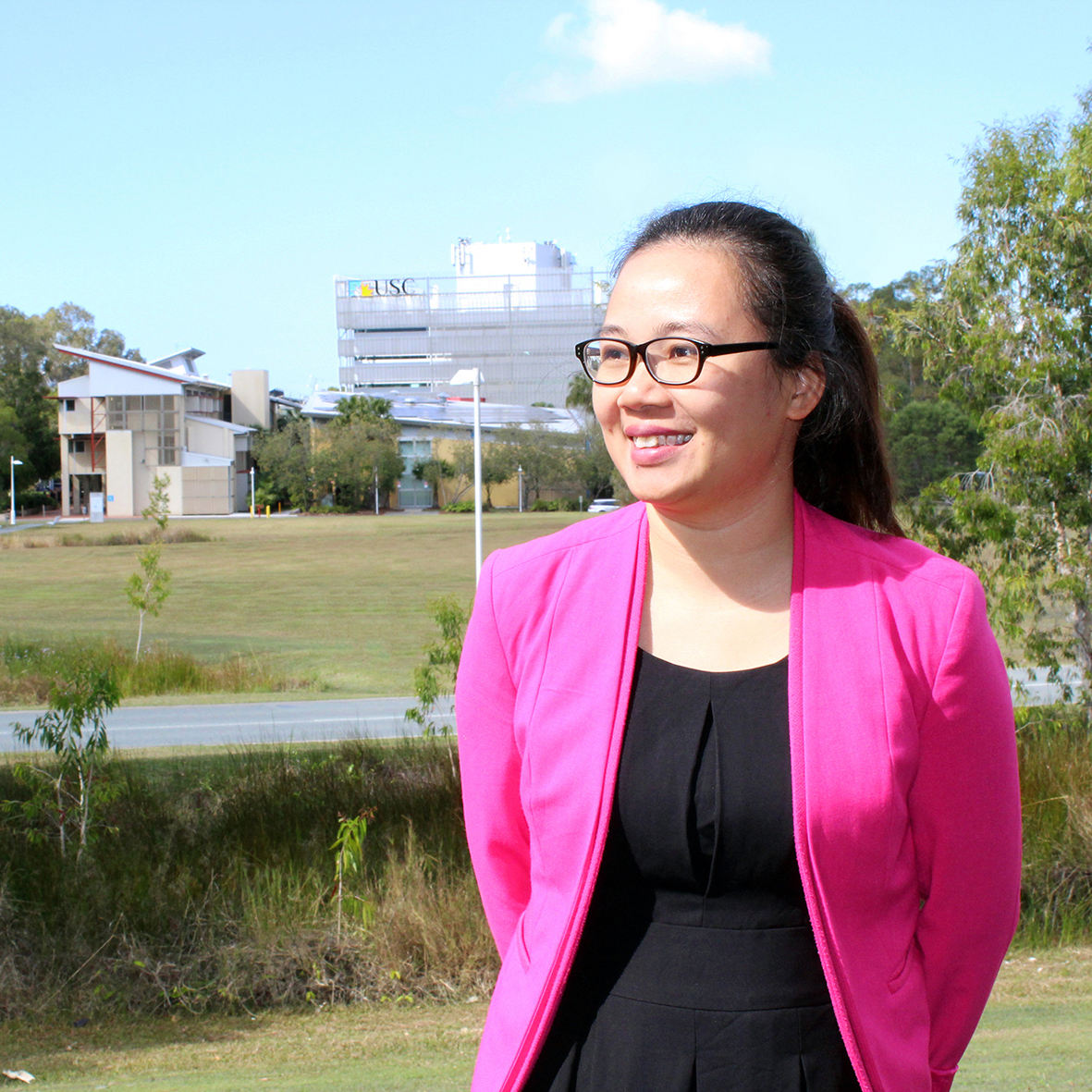A young researcher who has achieved promising results feeding plant-based foods to kingfish, has won the University of the Sunshine Coast’s annual Three Minute Thesis competition.
PhD student Chinh Dam from USC’s GeneCology Research Centre has won $1,000 from UniBank and the opportunity to represent USC at the 2019 Asia-Pacific 3MT Competition in Brisbane in October.
In her presentation – titled ‘Here comes the king(fish)!’ – Chinh gave the audience a succinct but comprehensive overview of how she was trialling new and cost-effective diets for yellowtail kingfish production in Australia.
“We have found that we can feed soy meal and other plant-based feed to kingfish without any adverse effects to gut microbiome or the health of the fish,” said Chinh.
“Fishmeal currently accounts for the bulk of aquaculture diets, but the world supply of fish meal will fail to meet the future demands of the global aquaculture sector.”
USC Dean of Graduate Research Professor Mark Orams congratulated Chinh, from Vietnam, on her victory and said she represented a talented and expanding cohort of Higher Degree by Research students at the University.
“We have over 450 HDR students and that number continues to rise, so it’s an exciting time to be part of a growing organisation,” Professor Orams said.
Angela Hinz from the School of Social Sciences was named runner-up for her presentation ‘From social media to the yoga mat’, which outlined her research into how yoga is represented in social media and how this affects audiences. She won $500 from UniBank.
The Three Minute Thesis competition challenges students to deliver their PhD theses in just three minutes with the aid of only one static presentation slide each.
Contestants are judged on their ability to provide entertaining explanations of their years of research – in layman’s terms. This process helps enable researchers to succinctly outline their work to potential research collaborators, funding bodies and the media.
Media enquiries: Please contact the Media Team media@usc.edu.au

